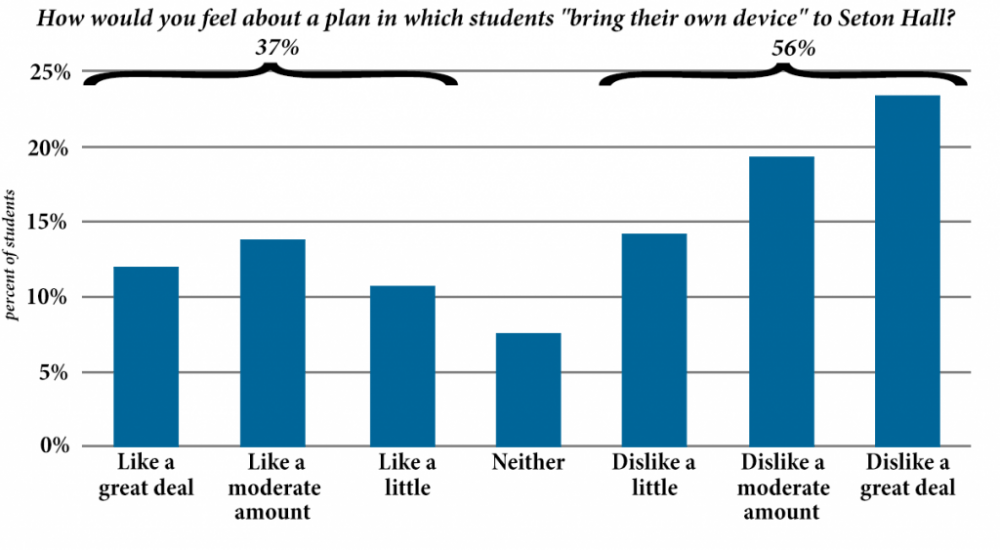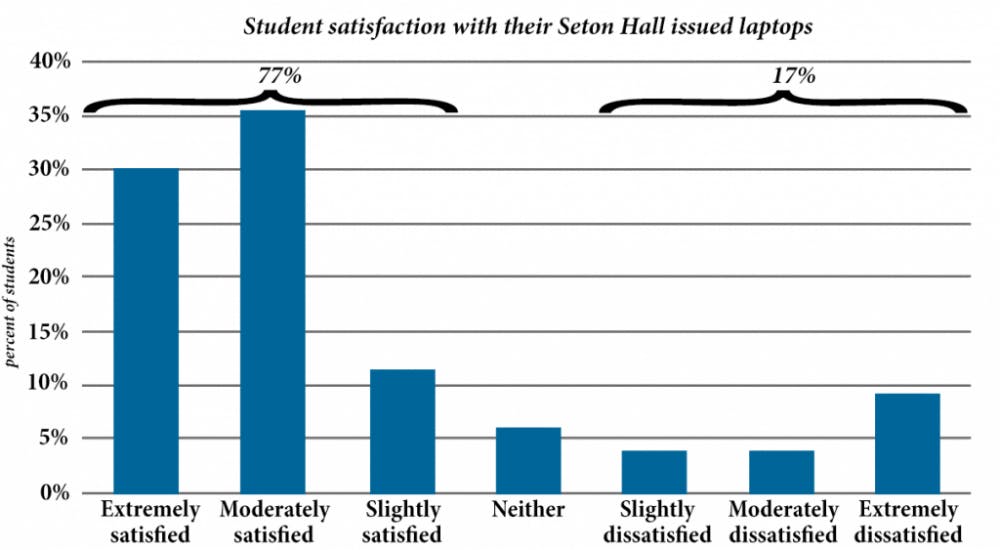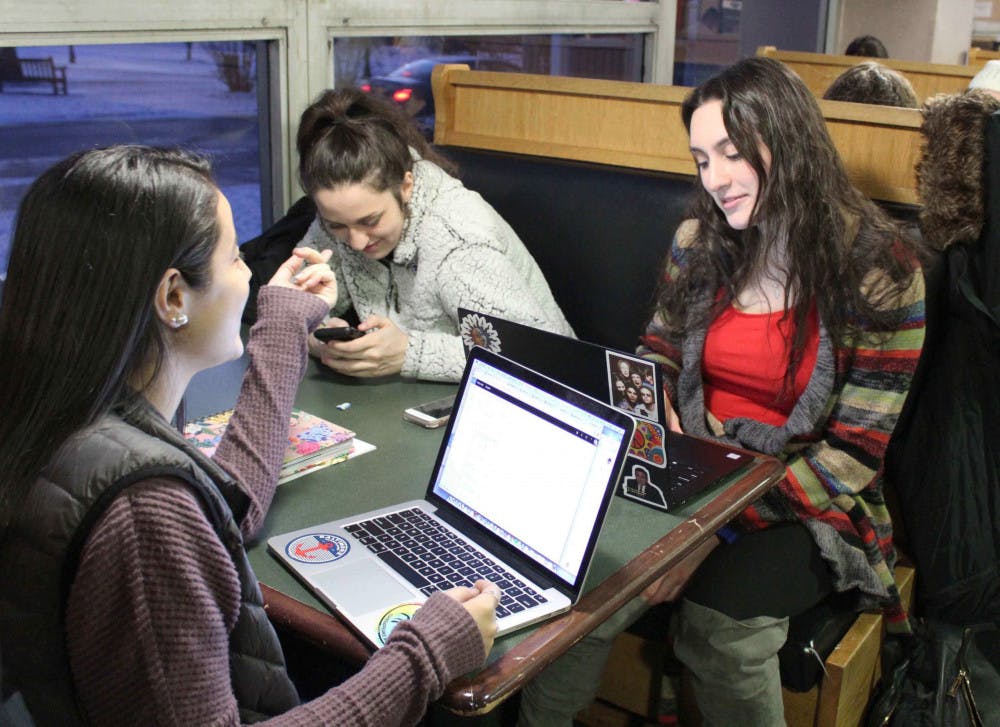A recent Setonian poll found that 56% of students did not like a plan which would require students to purchase laptops on their own rather than obtain them through the university’s mobile computing program
A recent Setonian poll found that more than half of all respondents did not like the idea of a “bring your own device” laptop program like the one currently being proposed by the University to replace the current mobile computing program provided by Seton Hall. The current program provides full-time students two laptops over the course of eight semesters at $275 per semester.

The poll, which was conducted between Feb. 20 and Feb. 25 also found that students were overwhelmingly satisfied with their Seton Hall laptops, though were split about satisfaction regarding price and the variety of laptops offered.
The poll also helped to shed light on how many students entered Seton Hall University with a laptop. According to the poll, 67% of all students entered Seton Hall with a laptop of their own, but 45% said that their device was four years or older when they enetered. Advocates of the elimination of the program have cited a similar statistic from the University which found 75% of students entered with a laptop already but have not cited any information about the age of the laptop.
At the Feb. 10 SGA meeting where the program was first pitched publicly by University officials, Chief Information Officer Stephen Landry floated the 75% statistic in discussing the options students would have when entering the University in lieu of the mobile computing program.

“There’s lots of options. I mean, 75% of the students, according to our survey, already have a laptop so they could use that their first couple of weeks if they want to buy one [later] from Follett or buy one whenever they want,” Landry said. “And we have computer labs. We don’t buy your textbooks. There’s no textbook lab you could go to.”
Additionally, Landry also implied that phones might be reasonable substitutes for students who don’t have laptops.
“One faculty member reported that they had a student that was writing their term papers on a phone. Well they can do that. That’s fine,” he said. “They have a device that meets the needs of that class.”
According to Chief Financial Officer Stephen Graham, who also spoke at the Feb. 10 meeting, under the new proposed “bring your own device” program, students “would have the choice whether or not they would want to bring their own device that met certain standards,” but did not specify what those standards would be.
The proposed plan would begin the phase out of the mobile computing program over the next four years, giving the option to current freshmen and sophomores the opportunity to opt-in or opt-out of the program when the time comes for their refresh at the beginning of their junior year. Opting-out of the program would strike the mobile computing fee from their bill and would allow the student to keep their current Seton Hall laptop. The program would be eliminated for all students going forward.
To replace the current program, Seton Hall has proposed partnering with Follett, a private Illinois-based educational supply company, which would work through the Seton Hall bookstore and allow students whose laptops are not up to standard or who don’t have a laptop to purchase one at education pricing. In theory, the program would include a payment plan, an extended warranty, insurance, a loaner program and a repair facility on-site. Preliminarily, Seton Hall officials have said the price of laptops from Follett look “comparable” based on the data they have reviewed so far but offered no specifics.
“They [Follett] do this for 800 schools across the country, so their buying power is, is really big. So we are, we’re gathering all that data now,” Associate Chief Information Officer Paul Fisher said at the meeting.

Still, students like sophomore nursing major Annemarie Ryan don’t seem to be completely sold on the plan.
Ryan said that she feels the school laptops work well for what she uses them for and said that the school should continue to keep an option for students who might not have the knowledge or funds to obtain a personal laptop.
Senior art major Andrew Cates said he was glad the Univeristy was reassessing the mobile computing program.
“I think it makes sense to reconsider the laptop program,” Cates said. “The mobile computing fee is not inexpensive, and if students are going to be paying that, they should at least have a greater variety of machines to choose from, or should be able to use that money in a more diversified way, for instance a cheaper laptop and an iPad, or a desktop for their home or dorm if they think that suits them.”
Additionally, students have blasted Seton Hall for a lack of transparency about the possible changes, with 68% responding that the University had not been forthcoming about the plan to potentially phase out the mobile computing program as early as the next academic year.
See the full results below.
Nicholas Kerr can be reached at nicholas.kerr@student.shu.edu. Find him on Twitter @NickKerr99.





